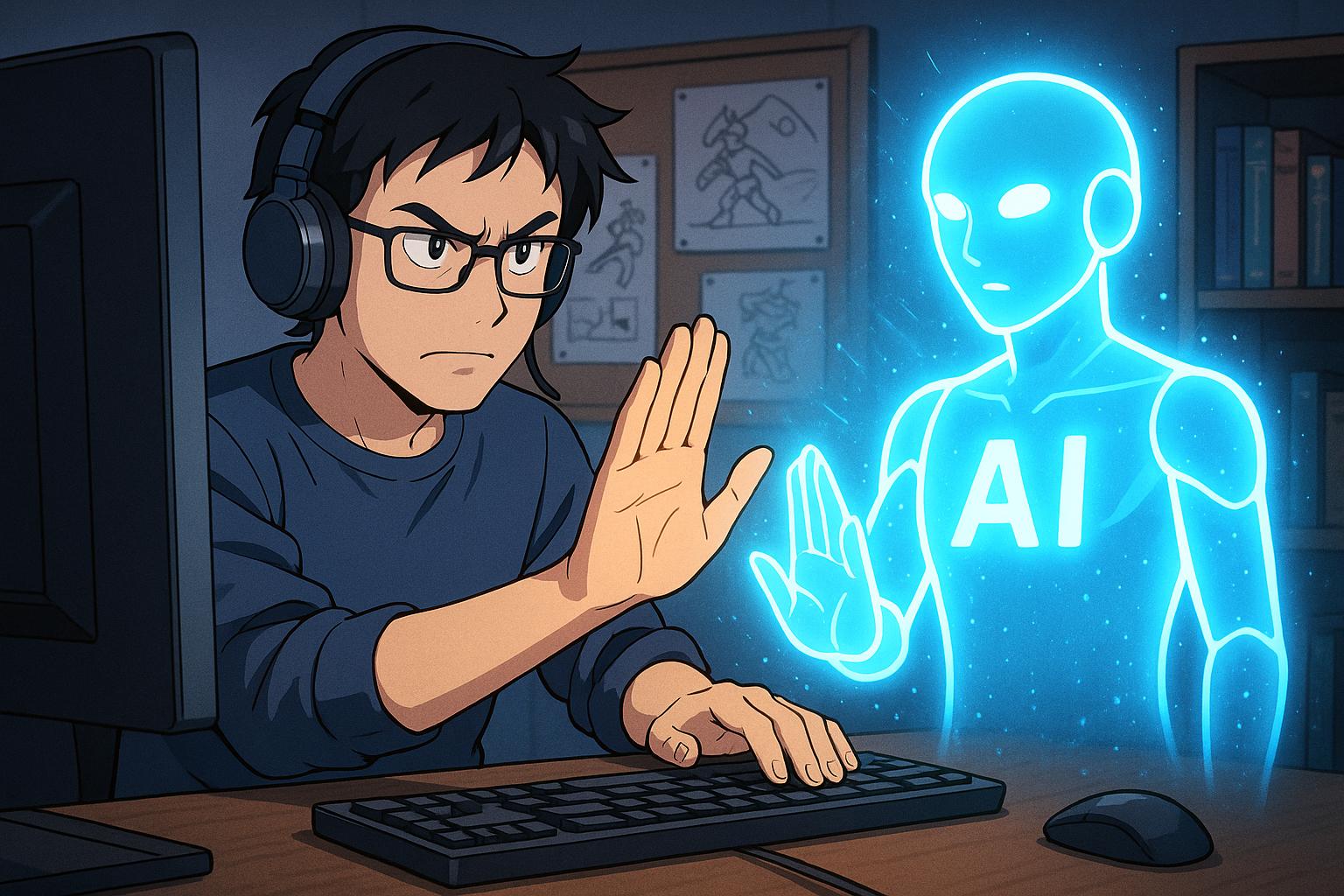Take-Two and EA have highlighted player scepticism and ethical concerns surrounding generative AI in gaming, emphasising the ongoing value of human creativity as GTA VI’s release is pushed back to 2026.
As the realm of video gaming continues to evolve, major publishers like Take-Two, the publisher behind the highly anticipated Grand Theft Auto VI, are publicly voicing concerns regarding the hype surrounding generative artificial intelligence (AI). Recent financial disclosures by both Take-Two and rival Electronic Arts (EA) acknowledge the significant risks associated with AI, particularly the negative perceptions held by players. Take-Two highlighted concerns over “negative user perceptions as to automation and AI,” while EA’s filings pinpointed the “social and ethical issues” that come with deploying this emerging technology.
Despite the fervour with which tech giants like Google are embracing generative AI, game developers are facing a different reality. The industry’s hesitation appears to be rooted in a more conscientious approach to creative integrity, particularly in light of delays in major releases like GTA VI, which has now been postponed until 2026. In the words of Strauss Zelnick, CEO of Take-Two, true success in gaming is predicated on originality and human creativity rather than the derivative nature of AI-generated content. He argued that authentic hits must be “created out of thin air” and cannot rely on recycled data, emphasising the irreplaceable value of human passion and unique vision.
The potential pitfalls of generative AI extend beyond just player sentiment. A growing body of literature outlines several inherent risks, including copyright infringement, loss of reputation, and the potential erosion of skills unique to human creators. Models trained on extensive datasets can inadvertently churn out content that both lacks originality and infringes on intellectual property rights, which may expose companies to legal liabilities. Additionally, there are reputational dangers if AI systems produce biased or offensive outputs, a concern echoed in discussions surrounding the broader implications of AI technologies.
Further complicating the landscape is the intrinsic unpredictability of generative AI. Reports show that AI models can produce misleading or inaccurate content—a phenomenon referred to as “hallucination”—alongside culturally insensitive outputs. With risks of misinformation and ethical breaches looming large, concerns around privacy and data security are also prevalent. The inconsistency of AI-generated material raises red flags not only for brand integrity but also for user trust.
As EA ventures deeper into generative AI, launching over 100 active projects aimed at leveraging this technology for efficiency, transformation, and expansion, the gamble may be exacerbated by the current immaturity of AI systems. The uncertainty surrounding their commercial viability raises questions about the effectiveness of these investments and whether the gaming community is ready to embrace these innovations at scale. In a market hesitant to replace human artistry with artificial processes, the path forward for generative AI in gaming remains fraught with challenges that demand careful navigation.
In summary, while major players in the gaming industry are grappling with the allure and peril of generative AI, the need for preserving human creativity remains paramount. The complex interplay between technological advancement and player perception suggests a cautious approach may be the most prudent strategy to safeguard the essence of what makes gaming a unique form of entertainment.
Reference Map:
- Paragraph 1 – [1], [6]
- Paragraph 2 – [1], [2], [5]
- Paragraph 3 – [3], [4]
- Paragraph 4 – [5], [7]
- Paragraph 5 – [6]
Source: Noah Wire Services
- https://www.gadgetguy.com.au/gta-take-two-ea-negative-ai-perception/ – Please view link – unable to able to access data
- https://www.gamesradar.com/games/grand-theft-auto/ahead-of-gta-6-take-two-ceo-says-hes-not-worried-about-ai-creating-hits-because-its-built-on-recycled-data/ – In an interview for Carolyn Dailey’s book ‘The Creative Entrepreneur,’ Take-Two CEO Strauss Zelnick expressed confidence in human creativity over AI-generated content. He emphasized that true success in the gaming industry comes from fostering originality and innovation among creators, criticizing the derivative nature of AI. Zelnick argued that big hits must be ‘created out of thin air’ and cannot stem from recycled data, highlighting the importance of human passion and unique vision in groundbreaking creative works.
- https://www.antegma.com/en/blog/2024/07/15/risks-of-generative-ai-for-enterprises/ – This article discusses the potential risks associated with the use of generative AI in enterprises, focusing on issues such as copyright infringements, loss of reputation, and loss of know-how. It highlights how AI models trained on extensive datasets may inadvertently produce content that infringes intellectual property rights, leading to legal liabilities. Additionally, the article addresses the reputational damage companies may face if AI systems generate biased, offensive, or inaccurate content, and the risk of losing essential skills and institutional knowledge due to over-reliance on AI technologies.
- https://journals.sagepub.com/doi/10.1177/02663821231183756 – This study examines the dangers of generative artificial intelligence, highlighting challenges such as misinformation, privacy concerns, and ethical considerations. It discusses how generative AI can be used to create realistic but entirely fabricated content, raising the risk of spreading misinformation and fake news. The article also addresses privacy and data security issues, noting that AI models may inadvertently leak sensitive information from their training data. Additionally, it explores the amplification of bias in AI outputs and the potential for malicious uses of generative AI.
- https://www.forbes.com/councils/forbestechcouncil/2023/06/29/six-risks-of-generative-ai/ – This article outlines six risks associated with generative AI, including output quality issues, hallucinations, biased outputs, and vulnerability to abuse. It emphasizes the unpredictable nature of generative AI models, which can produce outputs that may not align with brand guidelines or cultural sensitivities. The article also discusses the phenomenon of ‘hallucinations,’ where AI models generate fabricated information, and the potential for biased outputs due to biases in training data. Additionally, it highlights the vulnerability of generative AI to misuse and the need for human oversight.
- https://coveringcompanies.journalism.cuny.edu/2024/11/07/eas-bet-on-ai-visionary-or-premature/ – This article examines Electronic Arts’ (EA) investment in generative AI, noting that the company has over 100 active AI projects across three strategic categories: efficiency, expansion, and transformation. It discusses the potential risks of adopting generative AI, including the technology’s current immaturity and the uncertainty of its commercialization. The article also highlights concerns about the effectiveness of AI investments and the potential for slow market acceptance, suggesting that EA’s early adoption may be a gamble.
- https://www.forbes.com/sites/peterbendorsamuel/2023/10/03/current-risks-involved-in-adopting-generative-ai-technology/ – This article discusses the current risks involved in adopting generative AI technology, emphasizing the immaturity of the technology and the uncertainties associated with its implementation. It highlights issues such as inconsistent outputs, hallucinations, and the need for human oversight to ensure reliability. The article also addresses the reluctance of companies to integrate generative AI at scale due to these maturity issues and the potential challenges in replacing human operations with AI systems.
Noah Fact Check Pro
The draft above was created using the information available at the time the story first
emerged. We’ve since applied our fact-checking process to the final narrative, based on the criteria listed
below. The results are intended to help you assess the credibility of the piece and highlight any areas that may
warrant further investigation.
Freshness check
Score:
8
Notes:
The narrative references recent financial disclosures from Take-Two and EA, dated 26/05/2025, indicating a high freshness score. However, similar discussions about AI’s impact on gaming have been reported since May 2023, suggesting some recycled content. ([shacknews.com](https://www.shacknews.com/article/135544/take-two-ceo-ai-games-quote?utm_source=openai))
Quotes check
Score:
7
Notes:
The article includes a direct quote from Take-Two CEO Strauss Zelnick: ‘Hits are created by genius.’ This quote has been reported in various sources since May 2023, indicating potential reuse. ([shacknews.com](https://www.shacknews.com/article/135544/take-two-ceo-ai-games-quote?utm_source=openai))
Source reliability
Score:
6
Notes:
The narrative originates from GadgetGuy, a site with limited online presence and credibility. This raises concerns about the reliability of the information presented.
Plausability check
Score:
7
Notes:
The claims about Take-Two and EA acknowledging risks associated with generative AI are plausible and align with industry trends. However, the lack of supporting details from other reputable outlets and the reliance on a single source diminish the overall credibility.
Overall assessment
Verdict (FAIL, OPEN, PASS): FAIL
Confidence (LOW, MEDIUM, HIGH): MEDIUM
Summary:
The narrative presents plausible claims but relies on a single, less reputable source and includes recycled content. The reuse of quotes and the absence of corroborating information from other reputable outlets raise concerns about its originality and reliability.













